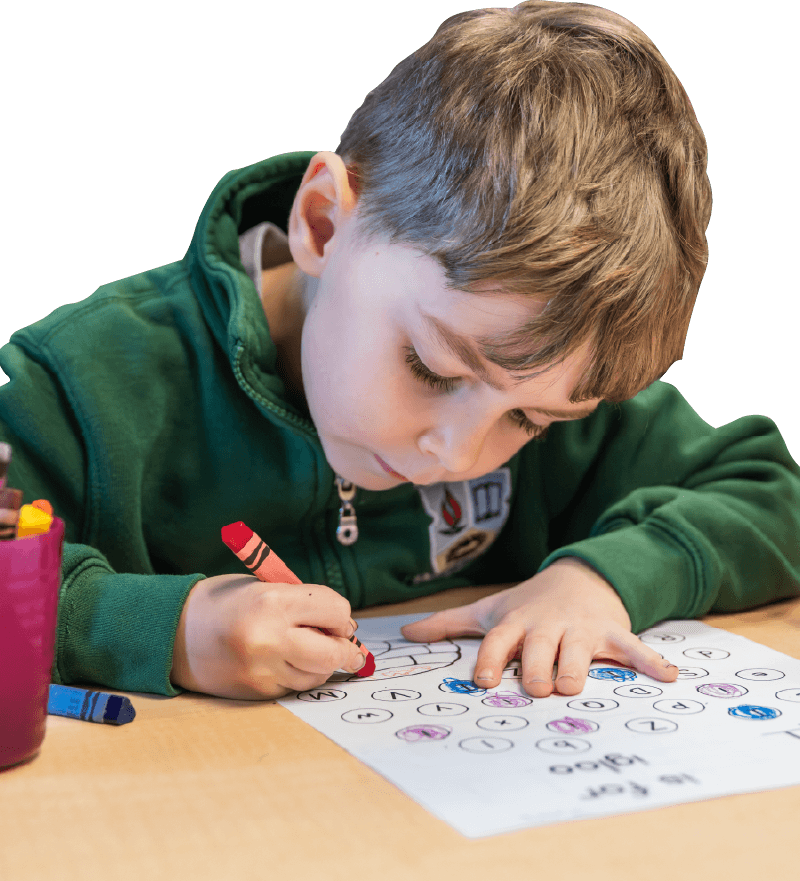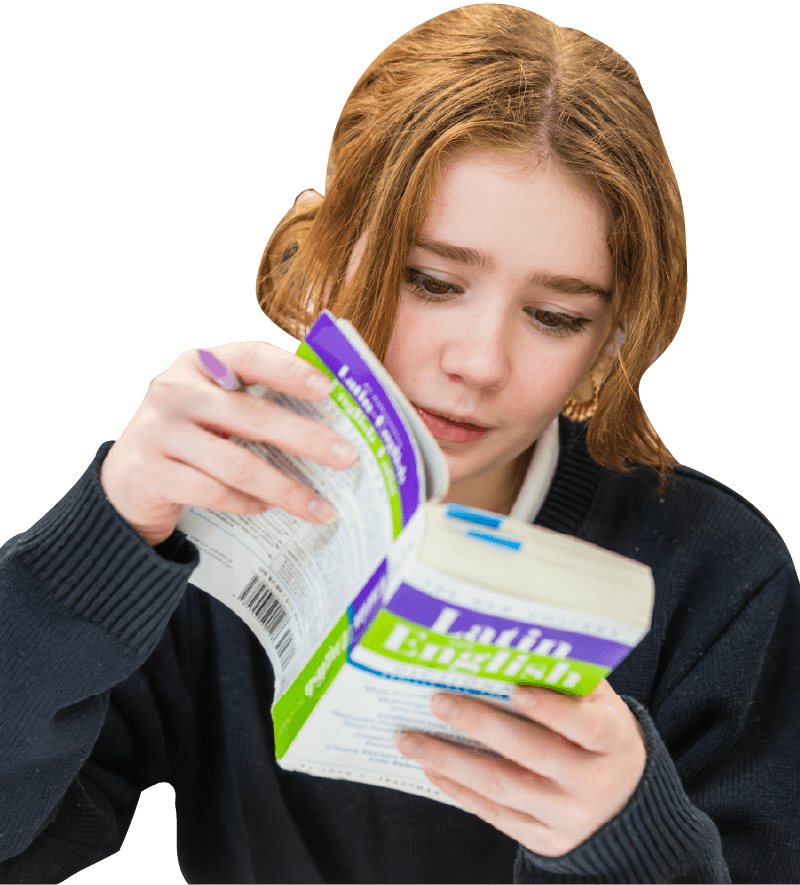Shaping Tomorrow’s Leaders Through a Classical Christian Curriculum
A Timeless Approach to Developing the Whole Person
St. Stephen’s Academy is committed to a classical education that goes far beyond contemporary academic boundaries. Grounded in biblical truth, our curriculum nurtures a knowledge and love of the Triune God and a deep understanding of human nature. The classical and Christian ideals of goodness, truth, and beauty are at the heart of our academic pursuits, preparing students to engage effectively with their generation’s challenges. Encompassing the seven liberal arts of the trivium and quadrivium, a St. Stephen’s education is designed to cultivate moral and intellectual virtues for self-governance, equipping students to be faithful leaders in their homes, churches, vocations, and communities.
Watch the Video: What is Classical Education?
The Classical Method
The classical method of instruction is organized around the trivium, or “three paths” or learning. In ancient and medieval educational models, the trivium described the meeting place or intersection of the three essential language arts—grammar, logic, and rhetoric—which were considered fundamental to the education of free people. These paths generally correspond to the natural development of the student’s mind as he or she grows in knowledge, understanding, and wisdom. This educational approach is eloquently described in Dorothy Sayers’ 1947 speech, "The Lost Tools of Learning,”
The Classical Trivium

In the Grammar Stage, the focus is on building a strong foundation of knowledge. Students memorize facts, learn language rules, and absorb key concepts across subjects. It lays the groundwork for future learning by emphasizing memory, observation, and foundational skills.

The Logic Stage centers on teaching students how to organize and evaluate propositions. Students develop critical thinking skills, learn to analyze information and make connections between subjects. This stage fosters a deeper understanding of concepts and encourages questioning.

In the Rhetoric Stage, the focus shifts to effective communication. Students learn to express their thoughts clearly and persuasively through oral and written communication. They become skilled in persuasive writing, public speaking, and eloquent presentation, preparing them for leadership roles and advanced studies.
School of Grammar
| K-5th Grade - Foundational Rules and Facts
The Grammar Stage is the foundational phase of the classical education model, spanning from kindergarten through 5th grade. During this stage, students focus on mastering the foundational rules and facts in various subjects. It corresponds with the developmental stage in which memorization and recitation are natural and pleasurable for students.
Key Elements
Early Grammar (PreK-2nd)
Students acquire foundational skills like spelling, reading, writing, reciting, and basic arithmetic
Upper Grammar (3rd-5th)
Students go deeper into memorizing historical facts, Bible passages, geography, science concepts, and poetry. In fourth grade, they begin studying Latin with a stronger emphasis on understanding the structure of language.
School of Logic
| 6th-8th Grade - Tying Facts Together
The Logic Stage, corresponding to 6th through 8th grade, represents a critical period when students begin to organize the facts they have absorbed in the Grammar Stage and make connections between them. This phase of learning includes the study of formal logic.
Key Elements
Dialectic (Question and Answer)
Here, students not only answer questions, but also begin to ask deeper questions of “why.” Teachers train students how to pose thoughtful and relevant questions, fostering independent thought and reasoning.
Formal Logic
Students receive systematic training in careful, cogent reasoning that equips them to recognize truth and think logically in all areas of study.
School of Rhetoric
| 9th-12th Grade - Art of Effective Communication
The Rhetoric Stage, spanning 9th to 12th grade, represents the culmination of the classical Trivium. It is both a stage of learning and an academic subject, the formal study of rhetoric. During this part of the curriculum, students hone their skills in communicating with clarity, elegance, and persuasiveness.
Key Elements
Humane Letters
Students read challenging texts before discussing and evaluating the author’s ideas with their classmates. They learn to read carefully, ask good questions, listen well, evaluate their thinking, and defend their convictions
Classical Rhetoric
Students study and practice the five canons of rhetoric:
- Invention: creating original arguments around a central thesis using sound logic and supporting evidence
- Arrangement: organizing information into persuasive order and arranging evidence convincingly while considering audience, setting, and emotional impact
- Style: evaluating words and sentences to most clearly reveal the truth through the effective use of language and rhetorical devices
- Memory: memorizing essential points for debates or entire speeches
- Delivery: practicing strategies that reflect the art of effective written and oral communication
Here’s how to become part of the St. Stephen’s community
1. Tour
Give us a call, and we’ll answer your questions and schedule a time for you to stop by.
2. Apply
Start the enrollment process by submitting an easy online application.
3. Enroll
Look forward to the first day of school and feel confident you made the right choice.

